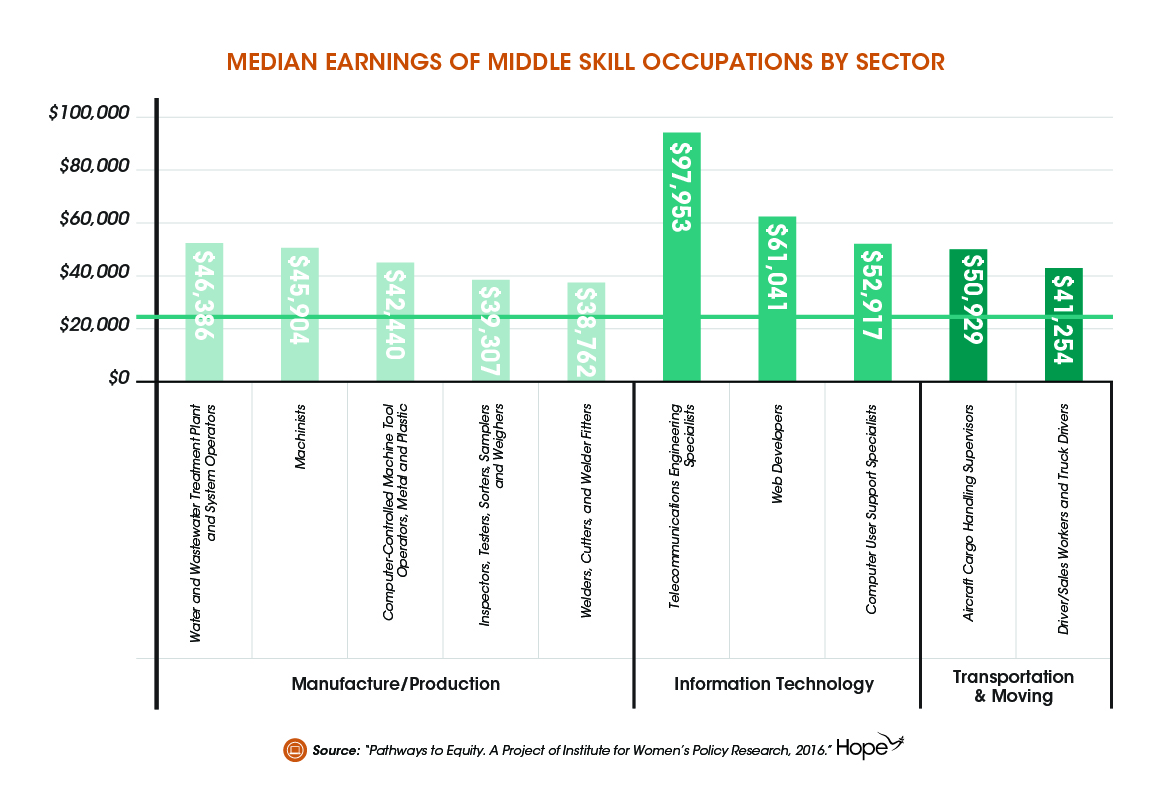Low-wage work alone cannot sustain families
January 20th, 2017
For millions of Americans, working one full-time job no longer brings the assurance of family security and the wages necessary to afford everyday expenses. These 34 million low-wage workers[i] (1.8 million in the Mid South) represent more than a quarter of the workforce over age 18. While supporting a family often costs more than a low-wage job can provide, increasing access to middle-skill careers can ensure families earn the wages necessary to meet all basic needs and save modestly.
The $11.66/hour average wage ($24,259/year) that low-wage workers earn is insufficient to independently feed, care for, shelter, insure, transport, and save for a family of four. One adult performing low-wage work cannot support a family of four above the poverty threshold and two low-wage adult earners still leave the family at or below the low-income threshold ($48,508/year), assuming full-time employment.
Click to enlarge
[i] A low-wage worker is defined as an individual 18 and older who is either employed at work or employed absent from work who earns below a state specific “low wage” figure (i.e., the national low-wage figure multiplied by the state cost of living index). The national low-wage figure was based upon the preliminary weighted average poverty threshold for a family of four in 2015 ($24,259). If a person works full-time for one year (i.e., 40 hours per week for 52 weeks per year) and earns $24,259 per year, that person would be making $11.66 per hour.
Middle-skill careers, by contrast, offer higher introductory wages and salaries; increased opportunity for advancement and wage increases via promotion and specialization; and family-friendly benefits packages. Through these pathways, the security of high-wages in stable or growing sectors can be obtained without a bachelor’s degree. Middle-skill careers require some postsecondary education or training, ranging from certificate programs (some as short as eight weeks) to an associate’s degree.
The cost of low-wages on families is clear: over 1.7 million working families in the Mid South rely in part on federal and state safety-net programs (i.e., Medicaid/CHIP, the Earned Income Tax Credit, Supplemental Nutritional Assistance Program, etc.) to meet family needs when full-time low wages are not enough. Increasing access to and upskilling adults into high-wage, family-sustaining middle-skill occupations, with benefits packages, is one way to address the unmet financial need of working families across the Mid South.
Source: [i] The Working Poor Families Project. “Pathways to Equity. A Project of Institute for Women’s Policy Research, 2016.”








